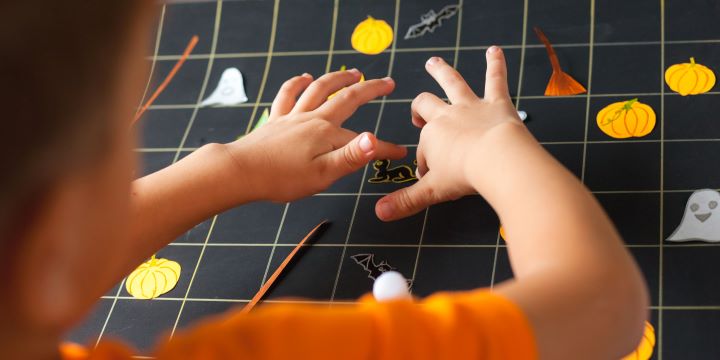Few tools are as powerful as play when laying a foundation for growth and learning in young children. Specifically, the role of preschool board games in early development cannot be overstated. These engaging and educational games provide a platform for children to develop critical thinking, social skills, and cognitive abilities—all within the framework of fun and interactive play.
A well-designed board game for preschoolers is more than just a pastime; it’s a conduit for growth and learning, offering a unique blend of entertainment and education in every session. In this guide, we will explore the benefits of board games for young minds and how to make the most of them for your preschooler’s development.
Table of Contents:
- Key Takeaways
- The Importance of Play in Early Childhood Development
- Playful Learning: Bridging Fun and Education
- Selecting the Right Educational Toys and Games
- Incorporating Technology in Play
- Outdoor Play and Its Unmatched Benefits
- Guiding Parents and Educators
- Assessing Development Through Play
- Overcoming Barriers to Play
- Future of Playful Learning
Key Takeaways:
- Preschool board games are a valuable tool for early childhood development, encompassing cognitive, motor, and social skills.
- Selecting age-appropriate and educational games can foster a positive learning environment for preschoolers.
- Oversight from parents and educators is crucial to guide and amplify the developmental benefits of play.
The Importance of Play in Early Childhood Development
Play is quintessential in the early stages of life, as the backbone for a child’s growth and brain development. Through play, children experience the world and develop core life skills. A variety of playful activities not only provides joy but also ensures healthy physical, emotional, and intellectual development. Structured activities like preschool board games, in particular, facilitate learning and social integration by introducing concepts such as rules, fairness, and patience.
Diving into the intricate play world greatly influences key developmental areas. Cognitive abilities are nurtured through games that challenge memory and strategic thinking. Motor skills are enhanced by interactive play that involves manipulation of pieces and space recognition. Emotionally, play is a safe harbor where children can express themselves and learn empathy through shared experiences with peers.
Playful Learning: Bridging Fun and Education
Playful learning is that harmonious mix where the joy of play meets the education structure. It’s a blended approach that introduces young learners to key concepts while they’re engaged in pleasurable activities. This form of learning is incredibly powerful as it employs the natural tendencies of curiosity and the desire to play to embed educational themes within the game’s narrative. With their rules and objectives, board games naturally lend themselves to such an approach, acquiring new skills as exciting as the play itself.
Within the context of a game, children unwittingly practice math, reading, and problem-solving. These games can be wonderfully illustrative, with themes that capture the imagination and characters that tell stories, every move promotes learning. Parents and educators can usher children into rich and interactive worlds that encourage cognitive development in a pressure-free and enjoyable setting by choosing the right game.
Selecting the Right Educational Toys and Games
The toys and games a child plays with can profoundly impact their development. Choosing educational toys—designed to develop specific skills or teach particular subjects—enriches the playful experience with learning opportunities. The right educational toys can challenge a child’s thinking, encourage creative problem-solving, and introduce new concepts in a fun and engaging way.
A well-chosen board game can teach fundamental numbers and shape recognition, encourage language development through storytelling, or improve social skills via cooperative gameplay. Preschool board games should stimulate the senses, foster interaction, and be adaptable to the child’s growing abilities. They should also be safe and durable and reflect the diversity of the world in which the child is growing up.
Incorporating Technology in Play
In today’s digital world, technology plays a significant role in children’s play. Interactive apps integrate touch and sound, offer rich visual stimulation, and can provide feedback that helps enhance the learning experience. However, it is crucial to balance digital play with physical play. While technology has its place, it should not supplant activities that develop fine motor skills and enable kids to interact with the world around them.
Moderation is key when incorporating screen time into a child’s day. An excess can lead to a sedentary lifestyle and detract from the benefits of other types of play. Parents should choose tech-based games that are active and educational and ensure they are used as part of a balanced play diet.
Outdoor Play and Its Unmatched Benefits
Nature offers a vast playground that encourages children to stretch their limits and promotes holistic development. Outdoor play is critical in developing physical abilities—running, climbing, and jumping enhance coordination and build strength. But it’s not just about physical prowess; the challenges kids face outdoors help with problem-solving and risk assessment, and the interactions with different environments support sensory development.
Moreover, playing outdoors is a unique opportunity to introduce children to the natural world. Activities such as gardening teach children about responsibility, the cycles of nature, and the importance of caring for our environment. Not only do these experiences lead to a healthier lifestyle, but they also help cultivate a generation of environmentally conscious individuals.
Guiding Parents and Educators
Adults have a significant role in facilitating children’s play. The key is to offer gentle guidance without taking over, allowing kids to lead their play and learn from their experiences. Parents and educators can create a supportive environment by providing the right materials and being available for questions or help when needed. Good play facilitation can steer children towards positive social interactions and support their emotional and intellectual growth.
It’s also crucial for adults to recognize when to intercede and when to step back. Knowing the right moments to introduce new concepts or challenges can turn a simple game into a meaningful educational experience. Observing how children play also gives adults insight into their developmental progress and individual learning styles, which can then inform how to support their growth best.
Assessing Development Through Play
Play assessment is a subtle yet informative way to gauge a child’s development. Parents and educators can gather insights into children’s cognitive, social, and emotional growth by observing children as they play. Children’s interactions with toys, board games, and other children during playtimes are key indicators of their abilities, competencies, and areas where they may need further encouragement or support.
Through activities like board games, children demonstrate skills such as strategizing, taking turns, and dealing with winning or losing, which can inform adults about their social and emotional maturity. Properly assessing these behaviors can help create more targeted and effective educational approaches that cater to each child’s needs and enhance their development.
Overcoming Barriers to Play
While play is crucial for development, not all children can easily access safe and educational play opportunities. Socioeconomic factors, lack of space, and limited resources can pose challenges. However, these barriers also present an opportunity to get creative with how and where children play. By advocating for play and working collaboratively, communities can help ensure all children can benefit from play.
Efforts to create accessible play spaces and playgrounds, to provide diverse and educational toys and games, and to build inclusive play initiatives are vital. Ensuring access to play for all children supports their immediate enjoyment and learning and their long-term development and well-being.
Future of Playful Learning
As our understanding of childhood development evolves, so does the role of play in education. Advances in research guide new approaches to playful learning, often incorporating a mix of traditional and digital methods. Looking ahead, we can expect to see more innovations in educational games and toys that cater to diverse learning styles and needs.
Continued investment in developing educational toys, resources, and strategies that support playful learning positions future generations to thrive. As the world changes, the skills and experiences developed through play will be essential to adapting to new challenges and opportunities.







